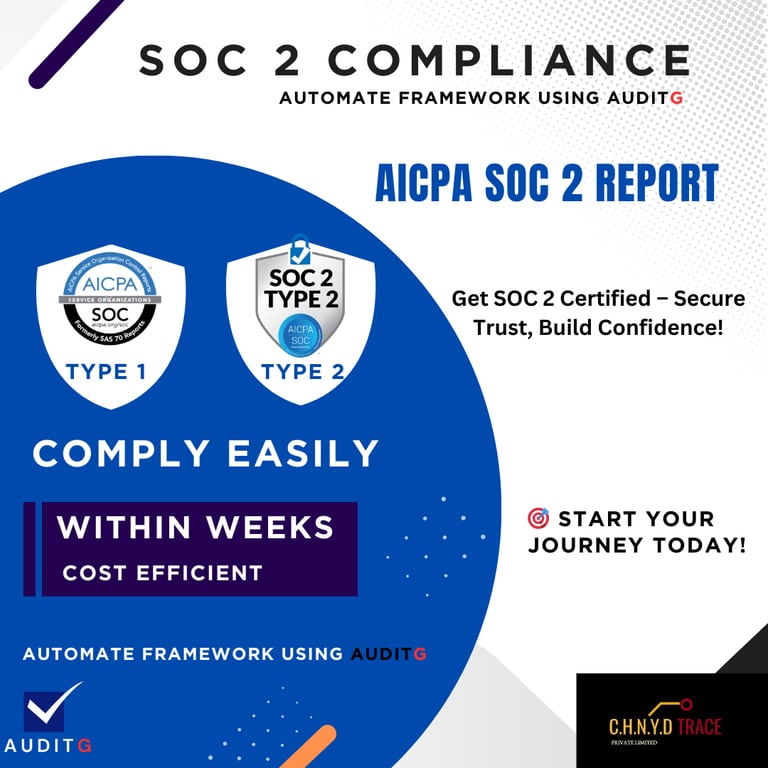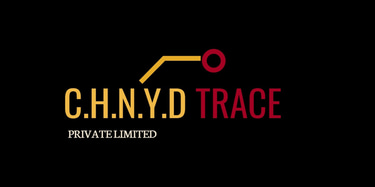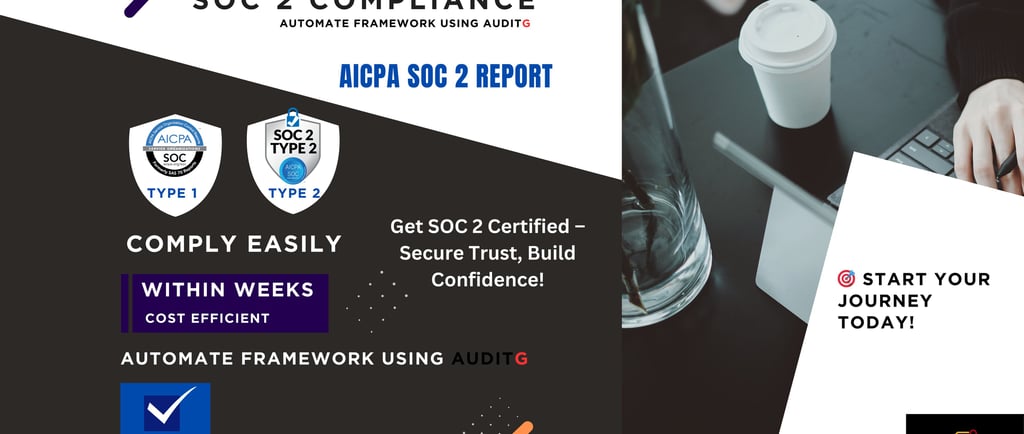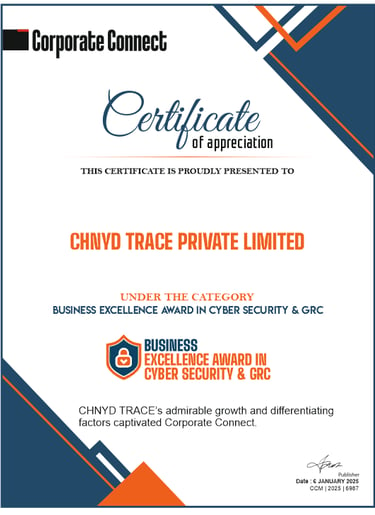soc certification cost in india
SOC Certification Cost in India: A Guide for Small and Medium Businesses
11/30/20245 min read
What is SOC Certification?
SOC (System and Organization Controls) certification is a crucial framework that helps organizations in demonstrating their commitment to security, availability, processing integrity, confidentiality, and privacy. Particularly for small and medium enterprises (SMEs) in India, obtaining SOC certification plays a significant role in enhancing trust among clients and customers. As businesses increasingly become digitized, the demand for robust data protection mechanisms is paramount, making SOC certification more relevant than ever.
There are three primary types of SOC reports: SOC 1, SOC 2, and SOC 3. SOC 1, which focuses on financial reporting, is primarily designed for organizations that provide services that could impact financial statements. This report allows businesses to showcase their operational controls over financial reporting processes. Conversely, SOC 2 and SOC 3 are more centered around data security and privacy. SOC 2 is particularly relevant for organizations that manage client data, as it provides insights into the effectiveness of internal controls related to security, availability, and confidentiality. SOC 3, on the other hand, is a more general version of SOC 2, designed for a wider audience to communicate compliance without revealing sensitive information.
By pursuing SOC certification, SMEs can benefit from improved operational protocols and better alignment with industry standards. Consequently, these businesses can not only enhance their security measures but also develop a competitive edge in today's crowded marketplace. Clients and business partners often prefer to engage with organizations that exhibit strong security practices, leading to increased trust and potentially, greater client retention. In a digital age where data breaches can severely damage reputations, SOC certification serves as a badge of assurance for businesses and their stakeholders.
Breakdown of SOC Certification Costs
The costs associated with obtaining a SOC (System and Organization Controls) certification in India can vary significantly based on several factors. For small and medium enterprises (SMEs), understanding these costs is crucial for effective budgeting. The first major cost is the audit fees charged by certified auditors. These fees usually encompass a comprehensive evaluation of an organization’s internal controls, processes, and security measures in accordance with the chosen SOC framework (SOC 1, SOC 2, or SOC 3). While the exact charges may differ between auditors, SMEs can expect to pay anywhere from INR 50,000 to INR 200,000 for the audit.
In addition to auditor fees, businesses may incur costs related to compliance and necessary improvements in security protocols prior to the certification process. These expenses can include investing in new technologies, employee training, and enhancements in internal controls to align with SOC requirements. Depending on the specific requirements of the SOC report, these investment costs could range from INR 100,000 to INR 500,000 or more, especially for businesses with more complex operations or specific compliance mandates.
Moreover, organizations should consider costs associated with ongoing monitoring and re-certification. SOC certifications typically require annual audits to maintain compliance, and businesses should budget for these recurring expenses. It is common for SMEs to allocate around 20% to 30% of their initial certification costs for subsequent monitoring and renewal of their SOC certification.
Several factors influence the overall cost, including the size of the business, the complexity of its operations, and the specific type of SOC report sought. Larger organizations or those with intricate networks may face higher associated costs as they require more extensive audits. In estimation, SMEs should prepare for total certification costs ranging from INR 300,000 to INR 1,000,000 over a multi-year period, ensuring that they are equipped not only for the initial certification but for maintaining compliance as well.
Steps to Achieve SOC Certification
Achieving SOC certification is a thorough process that requires a systematic approach for small and medium businesses in India. The initial step involves assessing the current state of security measures in place. This assessment will provide a clear understanding of existing controls, weaknesses, and necessary improvements. Businesses should gather all relevant information concerning their information systems and data protection measures to create a baseline for enhancement.
Next, documenting processes is crucial. This includes outlining existing policies and procedures related to data security and compliance. Businesses must compile all necessary documentation that details how they protect customer data and how they respond to potential breaches or risks. This documentation will serve as a foundational part of the audit that validates adherence to SOC requirements.
Conducting an internal audit is the following step in the process. Internal audits can help identify gaps between current practices and SOC standards. This self-assessment provides an opportunity for businesses to rectify issues before the official SOC audit, ultimately saving time and costs associated with remedial actions.
Once preparation is complete, selecting a certified auditor is vital for the success of the certification process. Businesses should choose an auditor who specializes in SOC compliance and has experience with similar organizations. It is also helpful to establish a clear timeline for the certification process, as this can help maintain momentum and keep the company focused on timely completion.
To ensure a smooth audit process, businesses should engage in regular communication with the selected auditor. This involvement helps prevent misunderstandings and allows prompt resolution of any issues that may arise during the audit. After achieving SOC certification, continuous compliance and periodic reviews are essential. Businesses should establish internal policies for ongoing monitoring and improvements to safeguard against evolving security threats, thereby maintaining their commitment to data security and compliance.
Real-World Examples and Case Studies
In recent years, numerous small and medium businesses (SMBs) in India have embraced SOC certification as a means of bolstering their operational integrity and establishing trust with their clientele. One exemplary case is that of a mid-sized software development firm based in Bangalore, which attained SOC 2 certification. The owner reported that the certification process not only improved their internal controls but also significantly enhanced customer confidence. After achieving SOC certification, the company noted a 30% increase in client inquiries, primarily from potential customers who valued data security as a pivotal factor in their purchasing decisions.
Another strong example comes from a small financial services provider in Pune. By obtaining SOC 1 certification, they demonstrated their commitment to safeguarding client financial data. The CFO explained how the certification allowed them to secure partnerships with larger enterprises, which required stringent compliance standards. Post-certification, the company experienced a marked improvement in client retention rates and an expansion of their customer base, underscoring the competitive advantage gained through recognized adherence to security protocols.
Additionally, a food delivery service in Mumbai successfully pursued SOC 3 certification, focusing on their operational uptime and data handling practices. The owner mentioned that the transparent nature of the SOC 3 report provided their customers with peace of mind regarding safety and data handling within the app. This transparency was instrumental in fostering trust, leading to increased customer loyalty and a remarkable surge in user adoption rates following the certification announcement.
These testimonials highlight the strategic implications of SOC certification for SMBs in India. By sharing best practices and emphasizing the positive impacts on credibility and growth, these case studies illustrate the importance of adopting SOC standards for small and medium enterprises striving to improve their security posture in an increasingly data-driven marketplace. The insights drawn from these examples serve as a blueprint for other businesses looking to enhance their operations and customer trust through certification.
Contact Us for SOC 2
Reach out for SOC 2 Type 2 certification inquiries and AICPA attestation details. We're here to assist you with your compliance needs.








